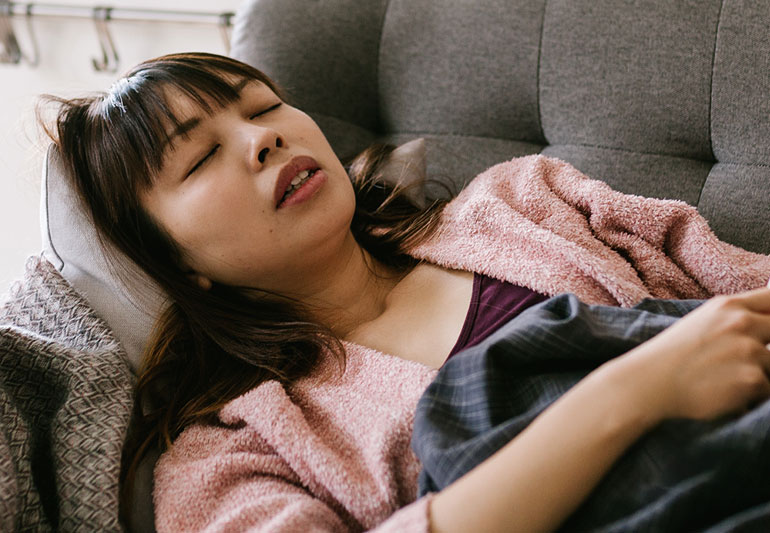Irregular periods in your 20s can be perplexing and concerning. This pivotal decade for reproductive health sees many women experiencing changes in their menstrual cycle due to a variety of reasons. From hormonal imbalances and the impact of lifestyle factors to conditions like PCOS and stress, understanding the causes of irregular periods is crucial. This post looks into these factors and offers insights into why menstrual irregularities occur and how they can be addressed.

Contents
Causes of Irregular Periods in 20s
Irregular periods in your 20s can be concerning and confusing, often attributed to a variety of factors ranging from lifestyle changes to underlying health conditions. Understanding these causes can help in addressing the issue effectively. Here are some common reasons for irregular periods during this stage of life:
1. Hormonal Imbalance
In women in their 20s, hormonal imbalances are a common cause of irregular periods. This can stem from various factors such as stress, significant weight changes, and health conditions like thyroid disorders. Hormones like estrogen and progesterone play key roles in regulating the menstrual cycle, and any disruption in their balance can lead to irregularities. Addressing the underlying cause of the hormonal imbalance is crucial for restoring menstrual regularity.
2. Polycystic Ovary Syndrome (PCOS)
Polycystic Ovary Syndrome (PCOS) is a prevalent condition among women in their 20s, characterized by hormonal imbalance and metabolism issues that affect the ovaries. Symptoms may include irregular periods, acne, and excess hair growth. PCOS is linked to insulin resistance and can lead to irregular ovulation, causing unpredictable menstrual cycles. Treatment often involves lifestyle modifications and medication to manage symptoms and regulate periods.
3. Stress
Stress is a significant factor that can impact menstrual regularity. High levels of stress can lead to hormonal imbalances by affecting the release of cortisol, which in turn can disrupt the menstrual cycle. Stress-induced menstrual irregularities might manifest as skipped periods or unusually light or heavy bleeding. Managing stress through relaxation techniques, regular exercise, and counseling can help mitigate its effects on the menstrual cycle.

4. Weight Fluctuations
Extreme weight gain or loss can cause irregular periods in women in their 20s. Body fat influences estrogen production, and significant changes in weight can disrupt the delicate balance of hormones necessary for regular menstrual cycles. Being underweight or overweight can lead to missed or irregular periods, and achieving a healthy weight through balanced nutrition and exercise can help regulate menstrual cycles.
5. Excessive Exercise
While regular physical activity is beneficial for health, excessive exercise can lead to menstrual irregularities. High-intensity workouts can stress the body and disrupt the hormonal balance, potentially leading to delayed periods or amenorrhea (absence of menstruation). It’s important for athletes and physically active women to maintain a balanced exercise regimen and ensure adequate nutrition to support menstrual health.
6. Contraceptive Use
Starting or stopping birth control pills or other hormonal contraceptives can cause temporary irregularities in menstrual cycles. Hormonal contraceptives work by regulating or suppressing ovulation, and changes in contraceptive use can affect the natural menstrual cycle. It may take several months for periods to regularize after making changes to birth control methods.
7. Thyroid Disorders
Thyroid disorders, including both hypothyroidism and hyperthyroidism, can cause irregular periods. The thyroid gland plays a crucial role in regulating the body’s metabolism, and any dysfunction can disrupt hormonal balance, affecting menstrual cycles. Proper diagnosis and treatment of thyroid conditions can help restore regular periods.
8. Eating Disorders
Eating disorders such as anorexia nervosa and bulimia can lead to irregular or absent periods due to the extreme stress these conditions place on the body. Poor nutrition and unhealthy body weight can disrupt hormonal balance, affecting ovulation and menstrual regularity. Addressing the eating disorder with professional help is essential for restoring menstrual health.
How Are Irregular Periods Managed?
When it comes to managing irregular periods in your 20s, it’s essential to take a holistic approach. Here are some effective strategies to help you regulate your menstrual cycle:

- Balanced Diet: Ensure you’re fueling your body with a nutrient-rich diet that includes a good mix of carbohydrates, proteins, fats, vitamins, and minerals.
- Regular Exercise: Incorporate moderate physical activity into your routine to help maintain a healthy weight and improve overall well-being.
- Stress Management: Adopt stress-relieving techniques such as meditation, deep breathing exercises, yoga, or any activity that helps you unwind.
- Consult a Healthcare Provider: If you’re facing persistent irregularities, it’s crucial to seek guidance from a healthcare professional who can provide personalized advice and potential treatment options.
- Track Your Menstrual Cycle: Keep a period tracker to monitor patterns and identify any inconsistencies that may require attention.
- Consider Hormonal Birth Control: In some cases, your doctor may recommend hormonal birth control to help regulate your periods.
Can You Get Pregnant With an Irregular Period?
Yes, you can get pregnant with an irregular period. However, it can be more challenging compared to someone with a regular cycle. Here’s why:

- Ovulation is key: Pregnancy happens when sperm fertilizes an egg released during ovulation. With irregular periods, ovulation can be unpredictable, making it difficult to pinpoint your fertile window.
- Timing matters: Since cycles can vary in length, it’s harder to know exactly when to expect ovulation and have sex to maximize your chances of conception.
Even though it might be trickier, it’s not impossible. Here are some things to consider:
- Increased frequency: Having sex more frequently throughout your cycle, like every 2-3 days, can increase the chances of sperm meeting an egg if ovulation occurs.
- Ovulation tracking: There are methods to track ovulation even with irregular periods, such as basal body temperature tracking or ovulation predictor kits. These can give you clues about your fertile window.
- Doctor consultation: Talking to your doctor can be helpful. They can discuss your situation, and underlying reasons for irregular periods, and potentially recommend ways to regulate your cycle or suggest fertility treatments if needed.
Frequently Asked Questions
What impact can irregular periods in your 20s have on fertility?
Irregular periods in your 20s can make it challenging to predict ovulation accurately, affecting conception. Seeking medical advice if needed is crucial for evaluating fertility and exploring ways to optimize it.
What are some tips for boosting chances of conception?
Frequent intercourse, understanding ovulation signs, utilizing prediction tools, and monitoring the menstrual cycle are essential strategies. Consulting a specialist for fertility issues is recommended for personalized guidance in managing irregular periods and maximizing fertility.
Should I be concerned if I have irregular periods in my 20s?
While it’s common to have irregular periods in your 20s, seeking advice from a healthcare provider is important for evaluating overall health and fertility. Monitoring changes in your menstrual cycle and discussing any concerns with a specialist can provide valuable insights and support.
I am a medical student with experience and interest in Women’s health and well-being.